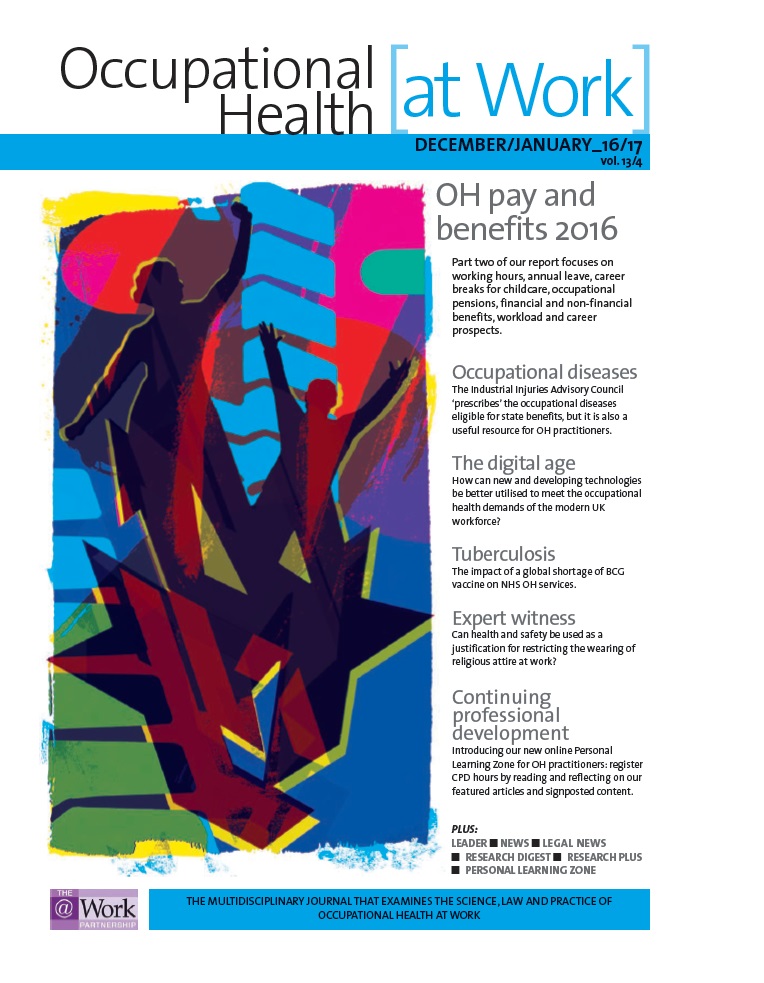December/January 2016/2017 (vol. 13/4)
ContentsFeaturesNewsLegal
NewsResearch DigestResearch PlusCPD
Research Plus
Benefits of peer support following occupational trauma
Peer support from trained colleagues was beneficial in reducing sickness absence following occupational traumatic events (TEs), analysis of 259 cases recorded in Germany over 10 years has revealed. Germany’s statutory social accident insurers recommend ‘psychological first aid’ (PFA) for public transportation employees after they experience a TE. It comprises emotional support and reassurance given by colleagues in the hours after the incident. The study compared outcomes where an employee had either received PFA from trained colleagues (n = 95), PFA from trained supervisors (n = 84), or had opted out of PFA (‘no intervention’, n = 80). All employees were obliged to contact occupational health after a TE. Compared with those receiving PFA from a colleague, sickness absence duration was significantly longer with increased TE severity (eg serious injury or fatality), older age and receiving PFA from a supervisor. The association between supervisor-provided PFA and absence duration was only apparent for less severe TEs; there was no association with more serious incidents. There was no significant difference between peer-support PFA and ‘no intervention’, though PFA was voluntary so there may have been some self-selection bias.
Occupational Medicine 2016; online first: doi: 10.1093/occmed/kqw141.
Occupational Health at Work December/January 2016/2017 (vol. 13/4) pp40



